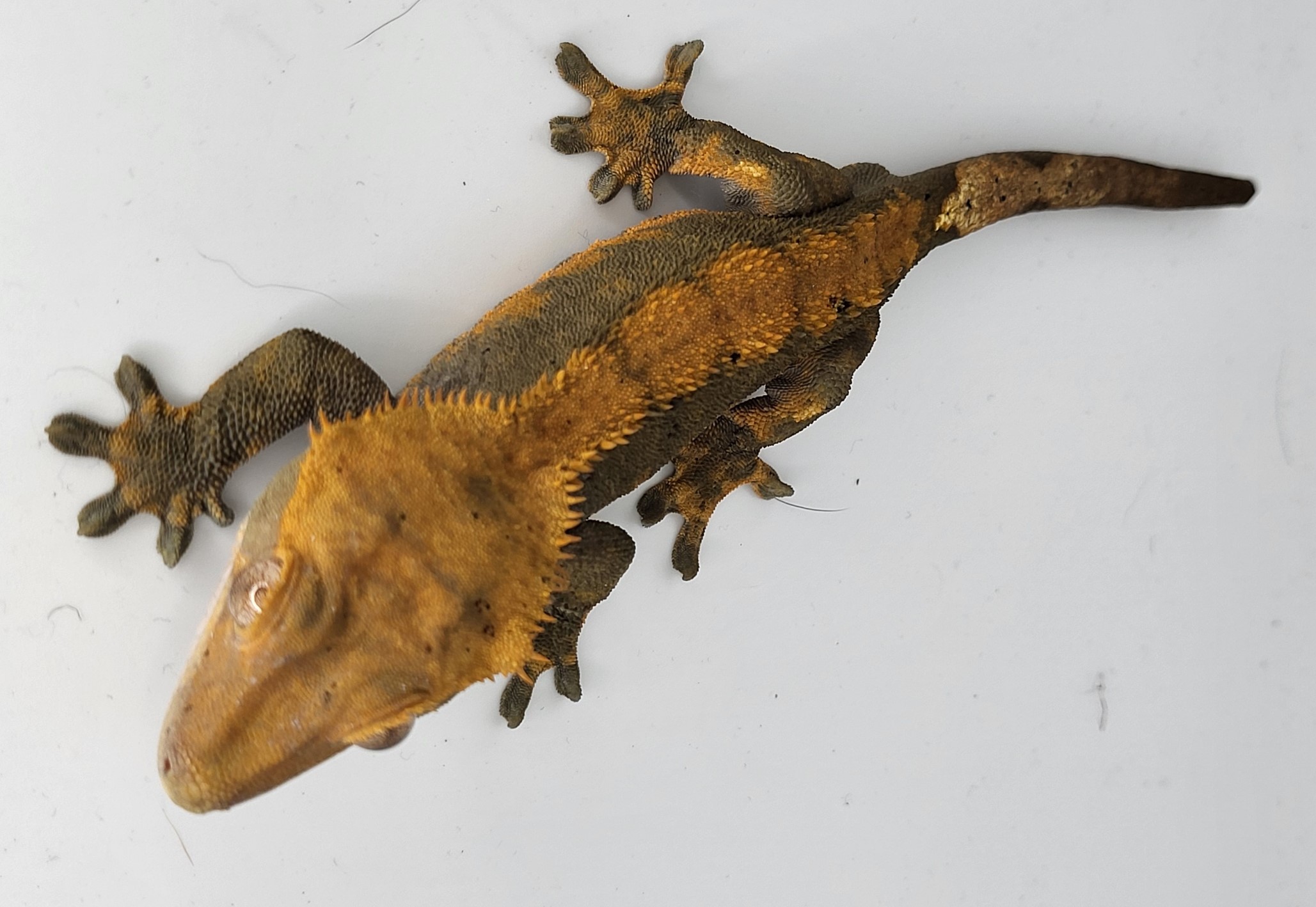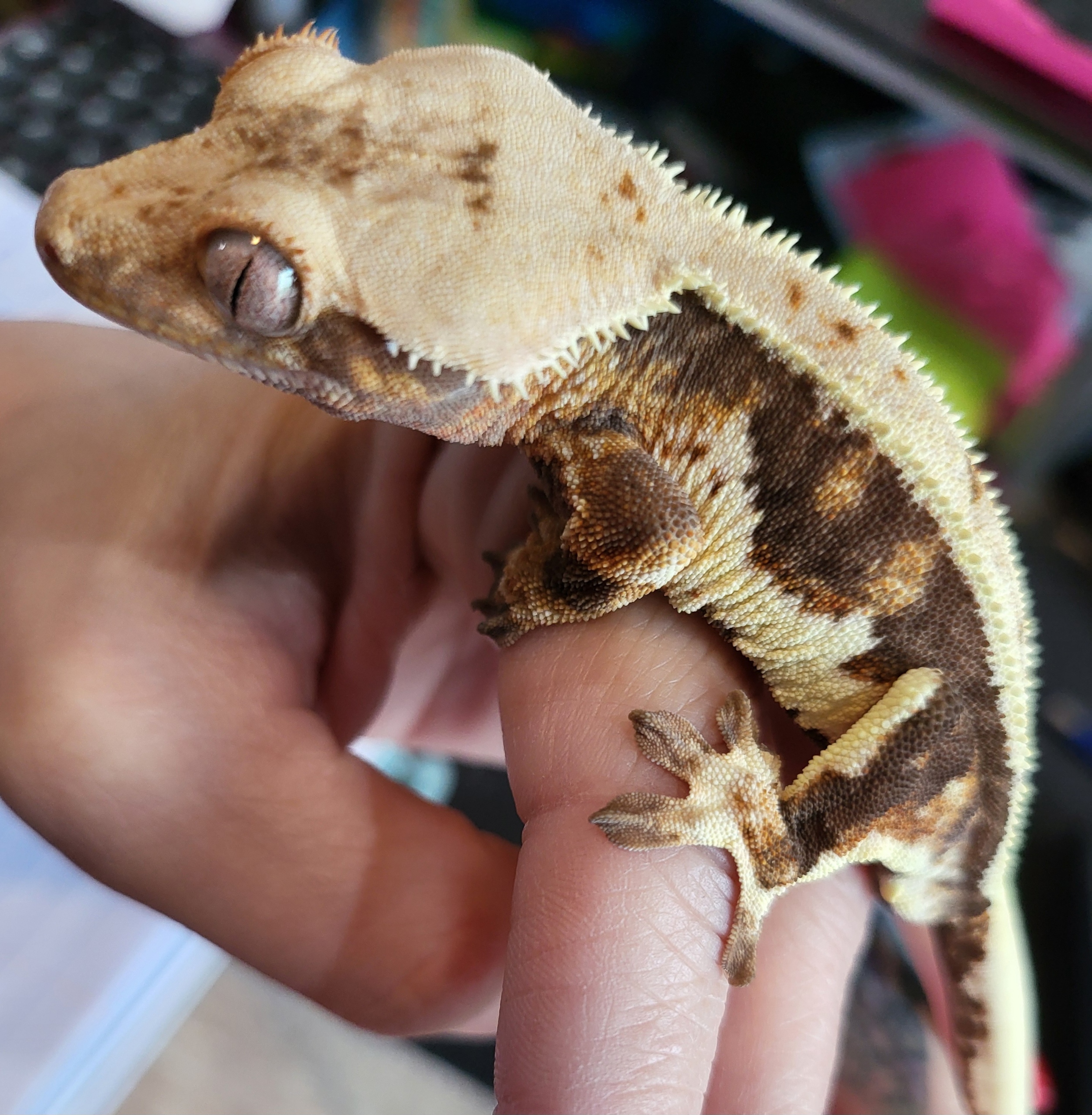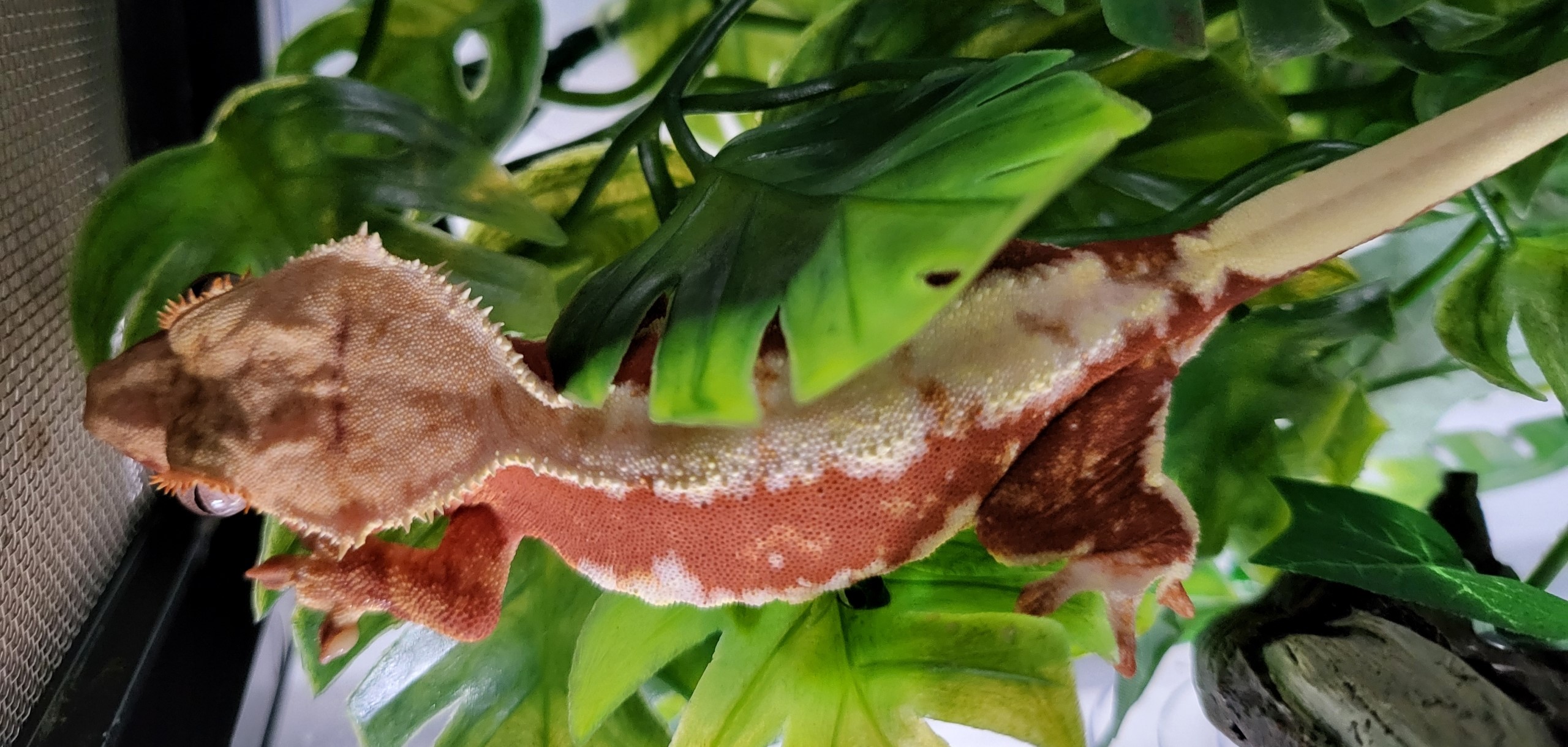Who we have available for adoption is constantly changing. We have new arrivals from rescuing and breeding happening on a regular basis. To browse and purchase, please click here.
Crested Gecko Care Instructions
About:
Crested Gecko/Eyelash Gecko (Correlophus ciliatus)- native to southern New Caledonia (France) Islands East of Australia. One of the easiest geckos to take care of.
Personalities:
Friendly, nocturnal, arboreal geckos known for their docile and calm temperament. Most will climb to your shoulder or head to get to the highest point. Babies are flighty while adults are much more calm. If spooked, they can drop their tails and become (frog butts). The tail, once dropped, will not grow back. They will be known as a “frog butt”. Losing the tail does not affect anything other than appearance.
Lifespan:
15 to 25 years. Be prepared to commit to a “family member”.
Size:
When born will be roughly 2-3 inches in length and weigh about 2 grams. Adults will range 8-10 inches from snout to tail tip and weigh 45-60 grams with males being slightly larger than females.
Diet:
Cresties are omnivorous. Their diet should include commercially prepared diets such as Pangea or Rapashy (insect flavors are best). Can also include live insects such as small crickets, dubia roaches, meal worms, wax worms and fly larve.
Habitat:
Cresties should be housed separately. A minimum size of 10 gallons (12 x 12 x 18) is recommended. For larger geckos, or to give more “elbow room” or add more items and make the terrarium more appealing 18 x 18 x 24 is recommended. Always include shrubs, branches and ledges for climbing and hides. Temperatures and Humidity levels are essential to a healthy gecko! Cresties thrive in a gradient 68-80 degrees F with humidity levels of 60-70%. If your home is colder than these temps, equip your tank with a low watt heating lamp. Misting the tank daily (sometimes twice/day depending on the humidity levels in the home) is ideal.
Tips for your new “Family Member”
• Let them settle in the first couple of weeks before attempting to handle them.
• Handle 10-15 minutes/day for 2-3 days a week for a couple of weeks to allow them to get used to you.
• After that, you can handle them as often as they will tolerate.
Who we have available for adoption is constantly changing. We have new arrivals from rescuing and breeding happening on a regular basis. Please reach out to us via email, phone or text for pictures and a list of who is currently available.





